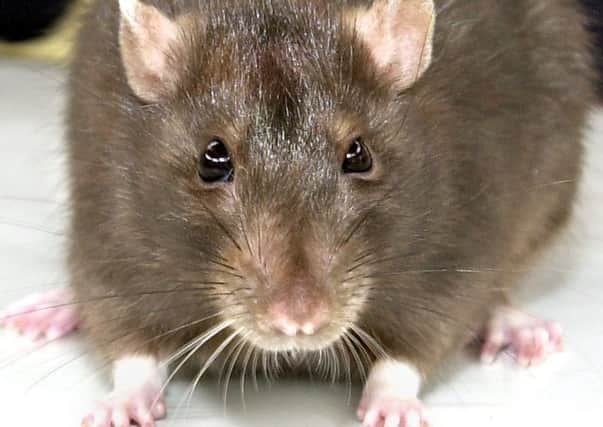Number of rats on rise in Lancaster district after mild winter


The number of call-outs the city council’s pest control officers dealt with last year rose by more than 100 as more rodents survived to breed into the following year due to warmer than expected weather.
Monkswood Avenue in Morecambe was one of the most visited streets by Lancaster City Council’s pest controllers last year with nine call outs, dealing once with rats, three times with mice, twice with bees and three times with wasps.
Advertisement
Hide AdAdvertisement
Hide AdMain Street in Hornby also had nine call-outs, five times for rats, once for wasps and three times for squirrels.
Pest control visited both Moorside Road in Brookhouse and Dorrington Road in Lancaster eight times, and Woodrush in Morecambe, Westfield Drive in Bolton-le-Sands and Deanpoint in Morecambe seven times.
These included incidents involving rats, wasps, bees, mice, fleas and ants.
The total number of call-outs for the service during 2014/15 was 804, compared with 695 for 2013/14 and 660 in 2012/13.
Advertisement
Hide AdAdvertisement
Hide AdRichard Walsh, environmental protection and public health team leader, said: “Common rats are widespread in urban and rural areas and can be found anywhere food and shelter is available.
“They are more active at night, but may be seen during the day searching for food, water or shelter.
“Householders can do a lot to prevent infestations. This can include ensuring buildings are in good repair, sealing up gaps around pipes going through walls, and repairing broken airbricks.
“Our pest control team is able to carry out pest proofing work and provide advice on other preventative measures which can be taken.
Advertisement
Hide AdAdvertisement
Hide Ad“Defective drainage should be quickly repaired, manholes should not be left uncovered for long periods of time.
“Avoid leaving excessive food out for birds and where possible use a secure birdfeeder. Compost heaps are a ready source of food, so make sure that these are controlled.
“Make sure household waste is stored and disposed of properly. Avoid accumulations of rubbish, overgrown areas in the garden and piles of timber, and clear areas that may offer shelter or nesting materials.”
Bare councillor June Ashworth, whose ward includes both Monkswood Avenue and Woodrush, said fly-tipping was contributing to the problem.
Advertisement
Hide AdAdvertisement
Hide AdShe said: “It’s something the council needs to get a grip on because it’s definitely a source for rats and foxes.
“They need to reduce the rates for people taking things to the tip.
“I think the railway line [in this ward] might have something to do with it too.
“I have had to call them out myself because my back garden backs right onto a school field and we were getting foxes in the garden and had seen a rat.”
Advertisement
Hide AdAdvertisement
Hide AdThe figures, which were provided following a Freedom of Information request asking councils for data for the most visited streets, do not cover private pest control operators who also respond to calls.